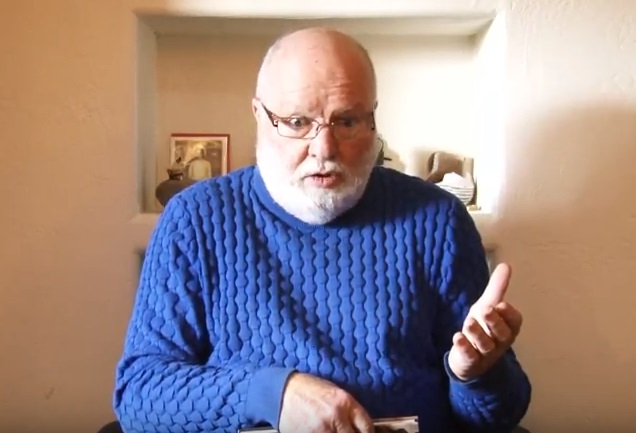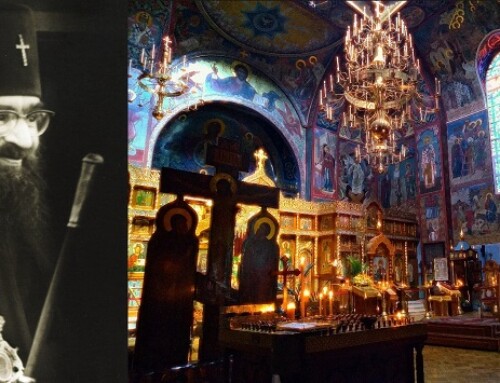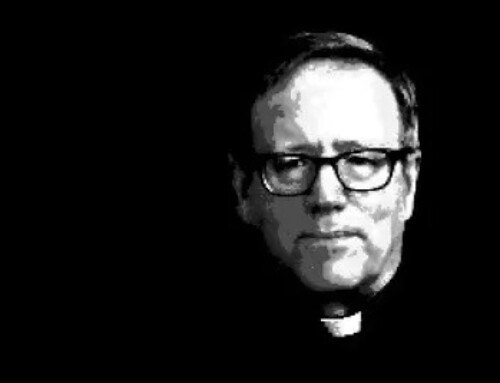At his website for The Center for Action and Contemplation, Richard Rohr, OFM, posts a series of “Daily Meditations” covering a broad range of Scriptural reflections interspersing contemporary, cultural, and political topics. In the November 9, 2017 entry, Rohr discussed the issue of “Identity and Desire.” He wrote:
Sexuality and gender identity elicit so many strong feelings and even irrational opinions because they touch upon something foundational. If you don’t recognize the sacred at this deep level of identity and desire, I don’t know if you will be able to see it anywhere else. When Christians label LGBTQIA individuals as “other,” sinful, or “disordered,” we hurt these precious people and the larger community, and we actually limit ourselves. Fear of difference creates a very constricted, exclusive, and small religion and life, the very opposite of what God invites us into.
Binary genders (male and female) are more an imposition of our dualistic minds than the nature of reality. The Bible often refers to “eunuchs” (see Isaiah 56:4-5, and Matthew 19:12, for instance) which may or may not have included people that today we might know as transgender, bisexual, intersex, gay, or lesbian. Many cultures identify a third or even fourth gender. Not everyone identifies internally with their external biology. And not everyone mirrors the cultural “norms” of gender roles or attractions. It is amazing that it has taken us this long to admit what is hidden in plain sight, and it must have caused immense suffering to so many throughout history.
While this non-dual awareness is growing, we have a long way to go. There is a great deal of contention, fear, shame, and hurt still to be healed. Whenever consciousness moves to a higher level, we can anticipate push-back, an equal and opposite reaction. Thankfully, it seems that religion and culture continue to mature. We see the Episcopal Church now welcoming and blessing same-gender relationships. Many countries like the United States, Canada, Germany, New Zealand, Brazil, and South Africa legally recognize same-sex marriage.
In a September 17, 2017 entry, Rohr wrote:
In fact, I have gone so far as to say, if Jesus never talked about it once, the churches will tend to be preoccupied with it (abortion, birth control, and homosexuality are current examples), and if Jesus made an unequivocal statement about it (for example, the rich, the camel, and the eye of a needle), we tend to quietly shelve it and forget it. This is not even hard to prove.
Jesuit priest James Martin makes nearly the same argument, when he stated this about homosexuality:
One way to be sensitive is to consider the language we use. Some bishops have already called for us to set aside the phrase “objectively disordered” when it comes to describing the homosexual inclination (as it is in the Catechism, No. 2358). The phrase relates to the orientation, not the person, but it is still needlessly hurtful. Saying that one of the deepest parts of a person—the part that gives and receives love—is “disordered” in itself is needlessly cruel.
Martin also claimed that Jesus never spoke about homosexuality, therefore He tacitly approved of it: “In his long ministry, his three-year public ministry, Jesus says nothing about the topic.”
In 1998, Rohr made a definitive statement on the Church’s teachings with regards to homosexuality in his essay “Where the Gospel Leads Us” in the book “Homosexuality and Christian Faith:”
The Achilles’ heel of the official Catholic position is necessitated by its own theology. Cardinal Ratzinger says that we do not consider the state of homosexuality a sin (this is actually quite an advancement in our thinking and implies that homosexuality is probably seen as an un-chosen condition), but only “acting” accordingly. Apart from the inconsistency with the theory of “natural law” (things must act according to their nature), this thinking proposes a second impossibility – to “mandate” a charism which is by definition a free gift. You cannot possibly order someone to have a charism, the “gift” of celibacy for example. It is an oxymoron and an insult to our theology of grace and gift. I have no doubt that we can and will do much better in the future.
He continued:
The arguments of the anti-gay folks are often well intentioned, but their goals and objectives seem to be different from those of Jesus…We cannot expect Jesus’ simplicity of intention to convert us so quickly, especially when he has had minimal success with in the areas of greed violence, use of power, and love of enemies where he is absolutely forthright and hardly able to be misinterpreted.
In his 2010 book “On the Threshold of Transformation, Rohr wrote:
In some Native American cultures, a homosexual person was often the shaman, or medicine man, of the community because he combined both the masculine and the feminine qualities in one person…This is very hard for the Western dualistic mind to process…Same-sex love is not going away because dualistic Western civilization or churches do not like it or are unwilling to deal with it.
He continued:
An area in need of healing is between heterosexual and homosexual men. Heterosexual men need to acknowledge and honor the experience of their homosexual brothers…Even Jesus was comfortable with another man placing his head on his chest, and the Gospel writers were not afraid to say that, nor was the “beloved disciple” afraid to brag about it.
Martin reaches many of the same conclusions, in that the present teachings expounded by the Church are completely untenable as homosexuals were essentially made that way by God: in 2017 interview, Martin said:
God made you this way. You are wonderfully made, just like Psalm 139 says. You were knit together in your mother’s womb this way, you know, it’s a mystery why you were made this way, but this is part of your identity.
In a 2015 interview with James Martin, Rohr said: “The Jesuits have been…my constant supporters.”
On February 6, 2018, Rohr will speak at a Theology on Tap event in the Archdiocese of Santa Fe.






Absolutely no surprise that this guy has to throw his two cents into the whole LGBTQAI-whatever, thing.
I knew him personally many decades ago when he was the darling of the Charismatic movement in Ohio.
He is a “post-Vatican II” priest…on steroids. Whatever wanders into his mind, he runs with it: Whether it makes any sense or not.
For some reason, his Superiors have let him run wild. Of course, that Province is dying now, for lack of vocations.
But, like us all, he is getting old and gray and, like us all , he will be standing before Jesus soon. Alone. With none of his adorers around.
Yup, no doubt about it, all the latest data are in, and it shows that God was in error in making them male and female.
Clearly, he either meant to make all one or the other sex.
Or He forgot to say that making them both in no way implied that their sexuality was intended for the other gender, and that we should ignore the functional complementarity of male and female as simply coincidental, not ontological.
To be serious, why should something like the myth of the shaman be accepted without evidence, just because Richard Rohr said it?
Obvious answer: “In God we trust. Everyone else bring data.”
Fortunately, Rohr provides proof of his own bias.
Inserting homosexuality into the story of St. John placing his head on Jesus’ chest is an artificial imposition.
That this is obvioulsy so is quickly seen by realizing that male-male non-sexual affection is readily shared in southern European and Middle Eastern cultures.
Another thing worth noting is the complete analogy between male-female-child and the Father-Son-Holy Spirit.
The only reason we regard the latter 3 as having maleness character (not male physiology, except Jesus in His humanity) is that all primary initiation is from God, and initiation is a maleness character.
Different language is perhaps possible, but what must always be asserted as from God is that active sexuality is male+female.
Golly I thought this guy was dead. So the newest bishop in Santa Fe allows him to spew his trash there…not a good sign.
Archbishop John Wester of Santa Fe and his clergy reveal that they have no depth, no breadth, nor any true appreciation of orthodoxy if they are willing to promote and condone swill like this.
This only confirms, once again, just how painfully insipid, shallow, and heterodox a very large portion of ordained clergy are in the Catholic Church these days.
Father Martin says: “God made you this way. You are wonderfully made, just like Psalm 139 says. You were knit together in your mother’s womb this way, you know, it’s a mystery why you were made this way, but this is part of your identity.”
What seems obvious from Fr. Martin’s made-that-way assertion, is that God dropped a stitch somewhere when he was knitting and did not make the male body so it could have sex with another man’s body. Unlike Fathers Martin and Rohr, physiology doesn’t lie. The beautifully made male body cannot have sex with another man’s beautifully made body unless one body receives –er, acts the woman and the other penetrates. When two men behave contrary to how their bodies are constructed, we can only conclude that God got it wrong which obviously is wrong even to a Jesuit.
Richard Rohr, proponent of the enneagram…so, you are saying that it is incorrect to reduce people to male and female but OK to reduce people to a number? You couldn’t reason your position out of a wet paper bag!